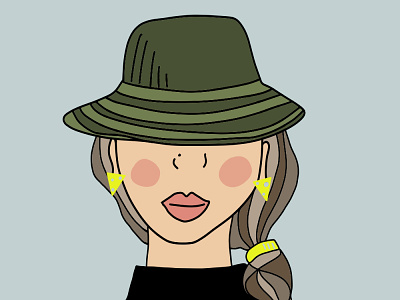Jaw clenching, also known as bruxism, is a prevalent condition where individuals grind or clench their teeth, typically during sleep. This can lead to a range of symptoms such as jaw pain, tooth damage, and sleep disturbances. Gaining insight into the causes of jaw clenching and implementing effective strategies can help alleviate these symptoms and enhance overall oral health.
One of the primary causes of jaw clenching is stress and anxiety. Increased stress levels can lead to the activation of facial muscles and muscle tension in the jaw. Additionally, misaligned or crooked teeth can also contribute to jaw clenching, as the jaw may try to find a more comfortable alignment during sleep.
To stop jaw clenching, several home remedies can be useful. Practice stress reduction techniques such as deep breathing, yoga, or meditation to promote relaxation of the jaw muscles. Using a warm compress on the affected area can also help alleviate muscle tension. Regularly performing facial exercises and physical therapy exercises under professional guidance can strengthen the jaw and relieve tension.
In some cases, professional treatments may be necessary. A dental professional can provide a custom-made bite splint or night guard, which can protect the teeth from grinding during sleep and reduce jaw pain. For severe cases, referral to a physical therapist may be suggested, who can provide specialized treatments like ultrasound therapy or massage to relieve muscle tension.
What is Jaw Clenching?
Jaw clenching, also known as bruxism, is a prevalent condition where the teeth are clenched or ground together rhythmically. This can happen during the day or at night and can cause various symptoms such as jaw pain, tooth damage, and facial disorders like temporomandibular joint (TMJ) or temporomandibular disorder (TMD).

Daytime clenching is often a result of stress, anxiety, or tension, while nighttime clenching can be caused by factors such as sleep disorders or an abnormal bite. Regardless of the underlying cause, jaw clenching can have serious consequences on oral health.
Prolonged jaw clenching and teeth grinding can result in jaw pain, headache, tooth sensitivity, and worn or damaged teeth. It can also lead to the development of TMJ or TMD, which can cause difficulty in opening or closing the mouth and may require professional treatment.
If you suspect that you are clenching your jaw, it is important to consult with a dental professional. They can assess the extent of the clenching and provide appropriate treatment options. This may include the use of a custom-made night guard or bite splint to protect the teeth and jaw during sleep, and in more severe cases, referral to a specialist for additional therapies.
By addressing jaw clenching early on, it is possible to reduce symptoms, prevent further damage, and improve overall oral health. Regular dental check-ups and practicing stress reduction techniques can also be beneficial in managing jaw clenching and its associated complications.
Jaw Clenching Symptoms
Jaw clenching, also known as bruxism, can have a range of symptoms that can vary from mild to severe. Common symptoms of jaw clenching include jaw pain or tightness, difficulty opening the mouth wide, headaches, earaches, tiredness upon waking up, worn or loose teeth, and broken fillings.

Experiencing jaw pain or tightness is a key indicator of jaw clenching. This pain can be felt in the jaw joint, muscles, or both. Individuals may also find it challenging to open their mouths wide or feel a restriction in movement.
Headaches are another common symptom of jaw clenching. These headaches can be tension headaches or migraines and may occur frequently, affecting one’s daily life.
During the act of clenching, excessive force is applied to the teeth. This can lead to various dental issues such as worn or loose teeth, broken fillings, or even damage to dental restorations.
It is crucial to address these symptoms promptly to prevent further damage. If you experience any of these symptoms, consult with a dental professional. They can examine your jaw and teeth, determine the underlying cause of your jaw clenching, and recommend appropriate treatment.
Managing stress, practicing relaxation techniques, and using a custom-made night guard or bite splint can help alleviate jaw-clenching symptoms and protect your teeth. Don’t ignore the signs – take action to preserve your oral health.
Jaw Clenching Causes
Jaw clenching, also known as bruxism, can have several causes that contribute to this condition. One of the primary factors is stress and anxiety, which can cause individuals to unconsciously clench their jaws as a response to emotional tension.
Another common cause is misaligned teeth. When teeth do not fit together properly when biting, it can lead to excessive pressure on the jaw joint and muscles, resulting in clenching.
Some people also tend to clench their teeth when they are intensely focusing on a task. This can be seen in individuals who work long hours on computers or those with high-stress jobs that require prolonged concentration.
The use of stimulating drugs, such as caffeine or recreational substances, can also increase the likelihood of jaw clenching. These substances can affect the central nervous system, leading to increased muscle activity, including jaw clenching.
Furthermore, there is a link between jaw clenching and certain illnesses or disorders. For example, sleep apnea, a condition characterized by disrupted breathing during sleep, has been associated with bruxism. Additionally, conditions like ADHD and Parkinson’s disease have also been found to increase the risk of jaw clenching.
If you suspect that you are clenching your jaw, it is important to address the causes and seek appropriate treatment. Managing stress and anxiety, seeking orthodontic treatment for misaligned teeth, and avoiding stimulating substances can help reduce jaw clenching and alleviate its associated symptoms.
How Can I Stop Clenching My Jaw?
There are various methods available to help stop clenching your jaw, such as jaw joint stretches and facial exercises. These techniques can assist in relaxing the jaw and improving its range of motion, ultimately reducing the occurrence of clenching.
One effective exercise is the jaw joint stretch. To perform this stretch, start by placing the tip of your tongue on the roof of your mouth right behind your upper front teeth. Then, slowly open your mouth as wide as possible, making sure to keep your tongue in place. Hold this position for a few seconds before closing your mouth. Repeat this exercise several times a day to help relax your jaw muscles.
Another exercise to try is manual jaw opening. Place your palms on the sides of your face, with your fingers resting on your cheeks near your ears. Use your palms to gently push your lower jaw downward, opening your mouth. Hold this position for a few seconds before releasing. Repeat this exercise a few times daily to help alleviate jaw tension.
Additionally, the smile stretch exercise can also be beneficial. Begin by closing your lips together and then separating your teeth slightly. Next, smile as wide as you can without parting your lips. Hold this position for a few seconds before relaxing your face. Repeat this exercise throughout the day to help relax the muscles around your jaw.
Incorporating these jaw joint stretches and facial exercises into your daily routine can help reduce jaw clenching and promote relaxation. Remember to consult with a healthcare professional if your jaw clenching persists or becomes severe.
Stop Clenching Your Jaw With These Home Remedies

Clenching your jaw can be a bothersome habit that leads to discomfort and tension in your facial muscles. Fortunately, there are several home remedies that can help alleviate and prevent jaw clenching.
One effective approach is incorporating relaxing routines into your daily life. Practicing techniques such as meditation, deep breathing exercises, or engaging in activities that help reduce stress can significantly reduce jaw clenching. Additionally, getting regular massages can help relax the muscles around your jaw, promoting a sense of relaxation and reducing the urge to clench.
Improving sleep hygiene is another important aspect to consider. Reduce your caffeine intake, especially close to bedtime, as it can contribute to muscle tension. Engaging in regular aerobic exercise can also help reduce stress levels and improve sleep quality. Maintaining a consistent sleep schedule can further promote a good night’s rest and reduce the likelihood of clenching your jaw during sleep.
A simple technique you can practice during the day is placing the tip of your tongue between your teeth. This can act as a reminder not to clench your jaw and help break the habit.
By incorporating these home remedies into your daily routine, you can effectively reduce jaw clenching and experience relief from discomfort and tension in your facial muscles. Remember to consult with a healthcare professional if the problem persists.
Should I See a Dentist if I Clench My Jaw?
Clenching your jaw can be harmful to your oral health and overall well-being. While occasional jaw clenching is a natural response to stress or anger, excessive and prolonged clenching can lead to various dental and health problems. If you experience persistent jaw pain, or discomfort, or notice signs of tooth damage, it is necessary to consult with a dentist.
Excessive jaw clenching and teeth grinding, known as bruxism, can cause significant damage to your teeth over time. The constant pressure and friction can result in abnormal wear and tear, enamel cracks, and even tooth loss. This can lead to heightened sensitivity, tooth pain, and an increased risk of dental issues such as cavities and gum disease.
It is important to be aware of the signs and symptoms of jaw clenching and seek dental attention if necessary. If you frequently wake up with jaw pain, headaches, or notice worn-down teeth, it may indicate bruxism. Your dentist can examine your teeth, diagnose the issue, and offer appropriate treatment options to alleviate the symptoms and prevent further damage.
Remember that early detection and intervention are key to maintaining your oral health. So if you experience any of these problems, don’t hesitate to schedule an appointment with your dentist to address the issue and protect your teeth from further harm.
Jaw Clenching Treatment—Professional Remedies
Jaw clenching, also known as bruxism, can cause significant damage to your teeth. Seeking professional remedies is essential for effective treatment.
First and foremost, it is important to visit a dentist to assess tooth damage and receive appropriate care. Your dentist will examine your teeth and may recommend a custom-fitted mouth guard. This device helps protect your teeth from the pressure and friction caused by clenching and grinding.
For severe cases of bruxism, botox injections can be an option. Botox can relax the jaw muscles and reduce the intensity of clenching. However, it is important to consult with a healthcare professional, such as a dentist or oral maxillofacial surgeon, who has experience administering these injections.
Aside from dental care, seeking support from a general practitioner (GP) may be beneficial. They can assess your overall health, including mental well-being, as stress and anxiety are often linked to jaw clenching. Your GP may recommend stress reduction techniques or refer you to a mental health professional for further support.
Improving sleep hygiene is another key aspect of managing bruxism. Visiting a sleep specialist can help identify any underlying sleep disorders that may contribute to jaw clenching. They can provide guidance on creating a healthy sleep routine and recommend appropriate treatments, if necessary.
In conclusion, seeking professional remedies for jaw clenching treatment is vital to prevent further tooth damage. Visiting a dentist, considering botox injections, consulting with a GP, and seeking help from a sleep specialist can all contribute to improved oral health and overall well-being.






